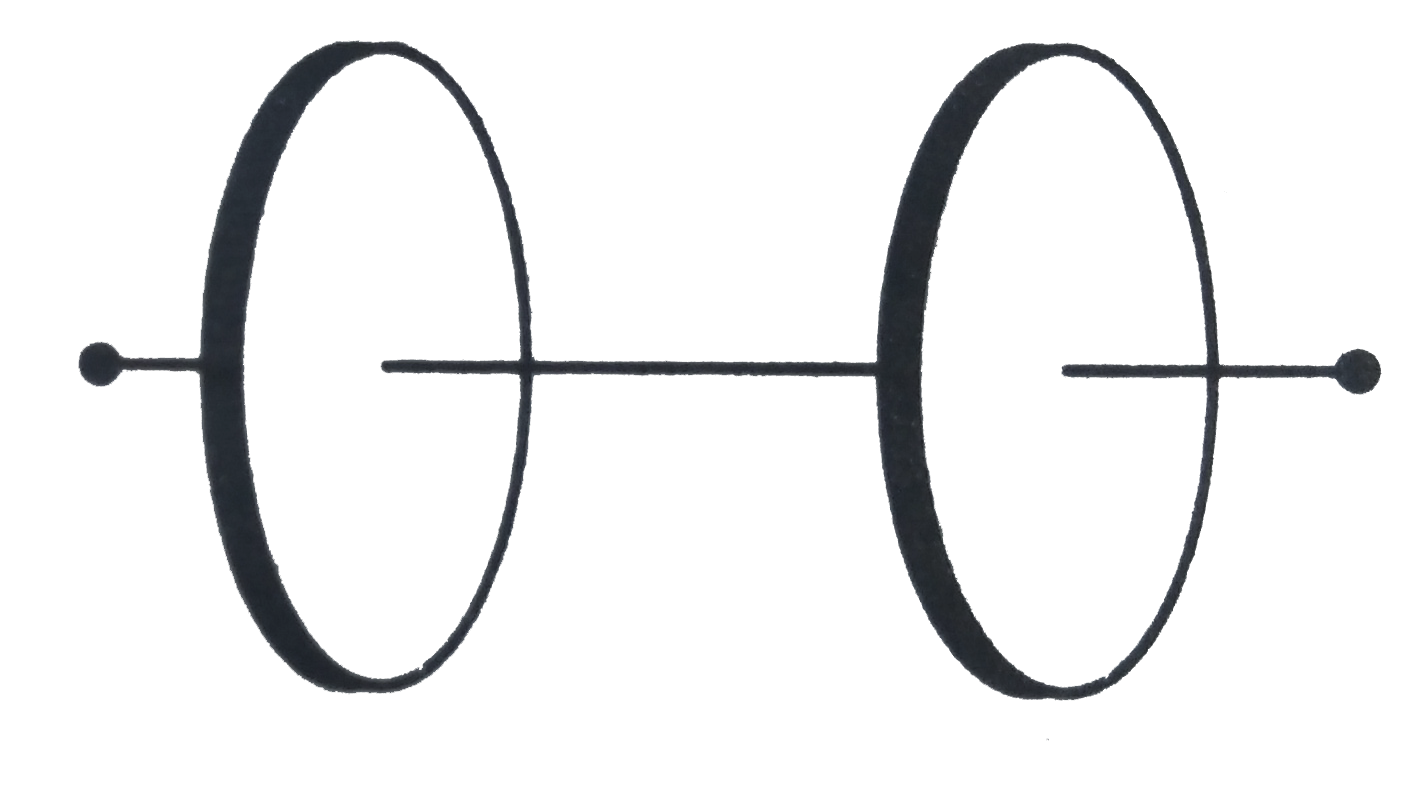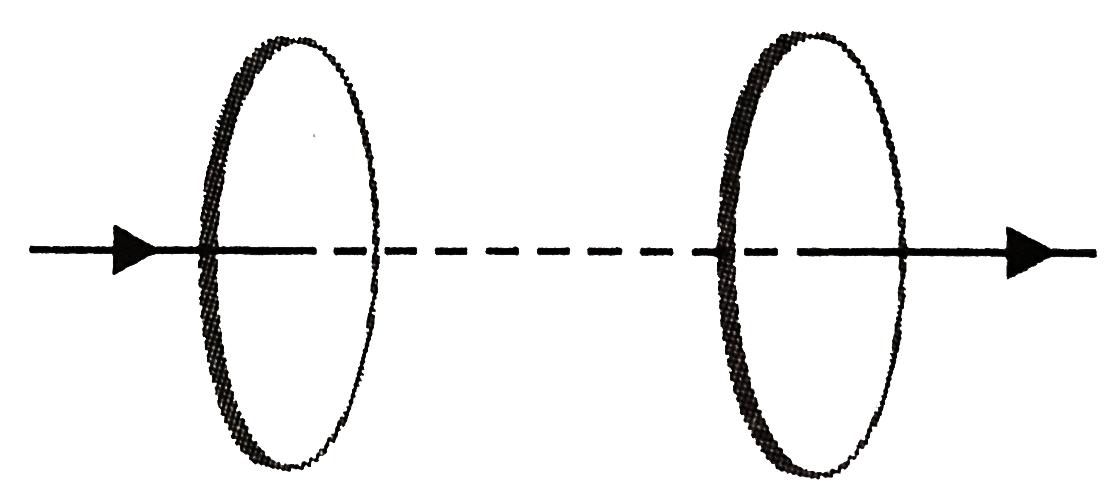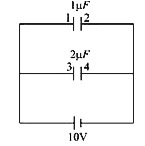Figure shows a capacitor made of two circular plates each of radius 12cm, and separated by 5.0cm. the capacitor is being charged by an external source (not shown in the figure). The charging current is constant and equal to 0.15A
(a) Calcuate the capacitance and the rate of change of potential difference between the plates
(b) Obtain the displacement current across the plates
(c) Is kirchhoff's first rule(junction rule) vaild at each plate of the capacitor ? Explain.
 .
.
(i) As displacement current across the plates
Id=ddt(ε0ϕE)=ε0dϕEdt
where ϕE = electric flux across the loop =∫loopE.dS
ϕE=EA=qε0
∴Id=ε0(qε0)=ε0ε0.dqdt=I=0.15A
i.e., displacement current is equal to condution current.
(ii) Yes, Kirchhoff's first rule is valid at each plate of the capacitor. Net current is equal to the sum of the condution current and the displacement current.
Topper's Solved these Questions
- ELECTROMAGNETIC WAVESBOOK - DC PANDEY ENGLISHCHAPTER - ELECTROMAGNETIC WAVESEXERCISE - Check point 8.1
10 Videos
- ELECTROMAGNETIC WAVESBOOK - DC PANDEY ENGLISHCHAPTER - ELECTROMAGNETIC WAVESEXERCISE - Check point 8.2
15 Videos
- ELECTROMAGNETIC WAVESBOOK - DC PANDEY ENGLISHCHAPTER - ELECTROMAGNETIC WAVESEXERCISE - Exercise Subjective
11 Videos
- ELECTROMAGNETIC INDUCTIONBOOK - DC PANDEY ENGLISHCHAPTER - ELECTROMAGNETIC INDUCTIONEXERCISE - Medical entrances gallery
25 Videos
- ELECTROSTATIC POTENTIAL AND CAPACITORSBOOK - DC PANDEY ENGLISHCHAPTER - ELECTROSTATIC POTENTIAL AND CAPACITORSEXERCISE - (C) Chapter exercises
50 Videos
Similar Questions
Fig. shows a capacitor made of two circular plates each of radius 12 cm and separated by 5.0mm. The capacitor is being charged by an external source (not shown in the figure). The charging current is constant and equal to 0.15A.
(a) Calculate the capacitance and the rate of change of potential difference between the plates.
(b) Obtain the displacement current across the plates.
(c) Is Kirchhoff's first rule valid at each plate of the capacitor ? Explain.

View SolutionA capacitor, made of two parallel plates each of plate area A and separation d, is being charged by an external ac socurce. Show that the displacement current inside the same as the current charging the capacitor.
View Solution
Knowledge Check
A capacitor made of two circular plates each of radius 12 cm and separated by 5 cm. The capacitor is being charged by an external source. The charging current is constant and equal to 0.15 A. The capacitance of the parallel plate capacitor is
 A40 pFB45 pFC70 pFD80 pF
A40 pFB45 pFC70 pFD80 pF
A capacitor, made of two parallel plates each of plate area A and separation d, is being charged by an external ac socurce. Show that the displacement current inside the same as the current charging the capacitor.
View SolutionThe charging current for a capacitor is 0.25A. What is the displacement current across its plates?
View SolutionThe force between the plates of a parallel plate capacitor of capacitance C and distance of separation of the plates d with a potential difference V between the plates, is.
View SolutionIn a parallel plate capacitor, the distance between the plates is d and potential difference across the plate is V. Energy stored per unit volume between the plates of capacitor is
View SolutionA capacitor is charged steadily from a DC source. Correct variation of potential difference across the plates of capacitor with charge on the plates of capacitor is
View SolutionTwo capacitros are fully charged by a battery as shown in the figure.

If the capacitors are disconnected from battery and plate 1 is connected to plate 4 & plate 2 to plate 3, then find the potential difference (in volts) across capacitors finally.
View SolutionIn a parallel plate capacitor of capacitor 1μF two plates are given charges 2μC and 4μC the potential difference between the plates of the capacitor is
_2019_CBT2_E01_002_Q01.png)
View Solution
